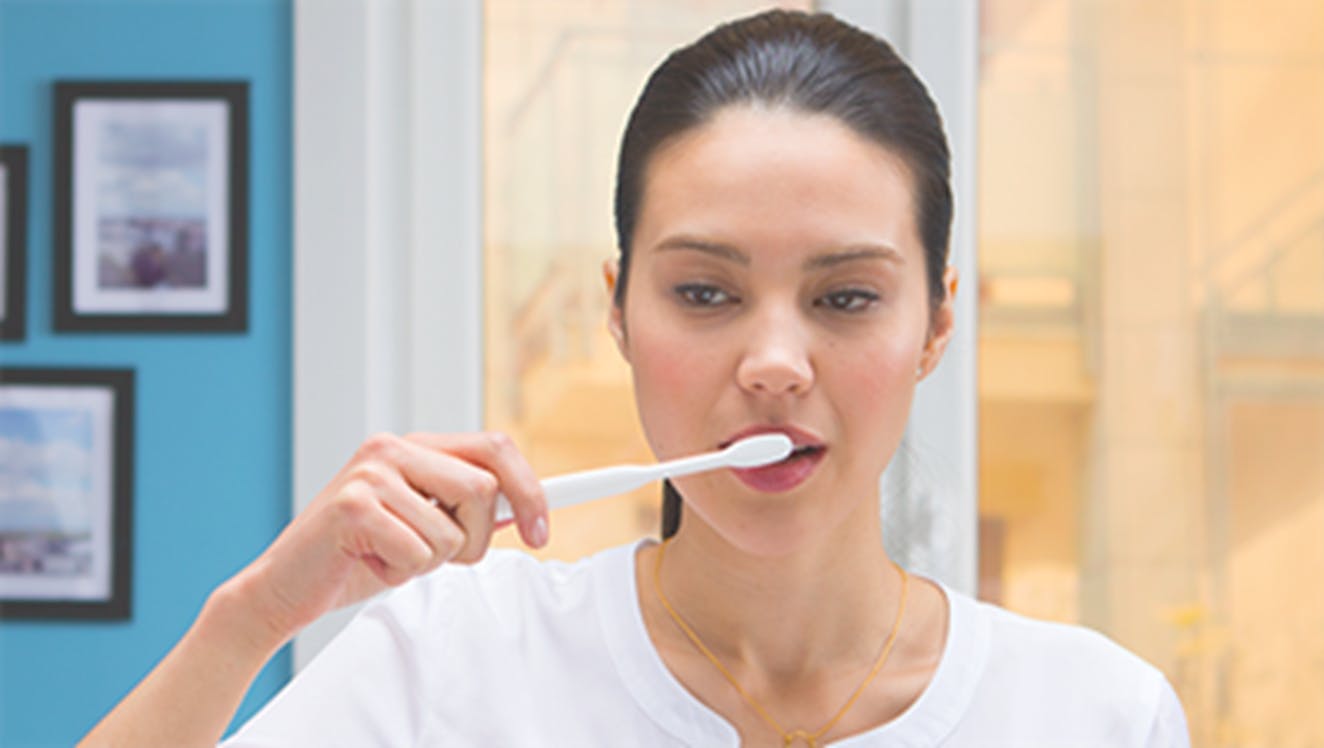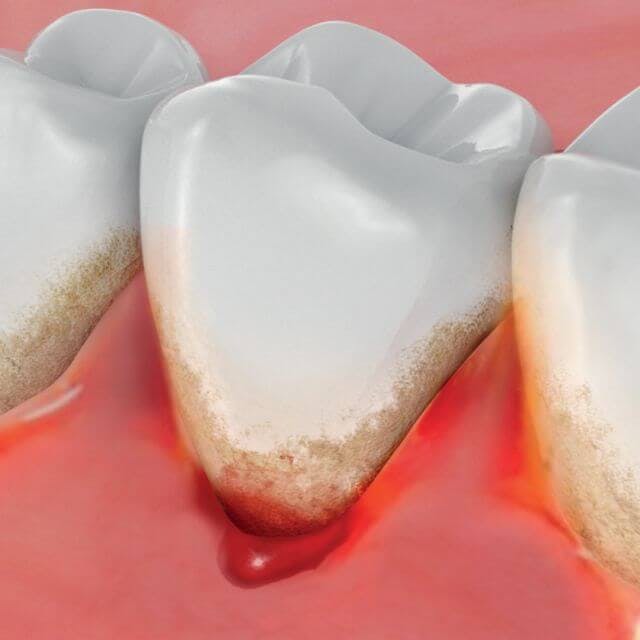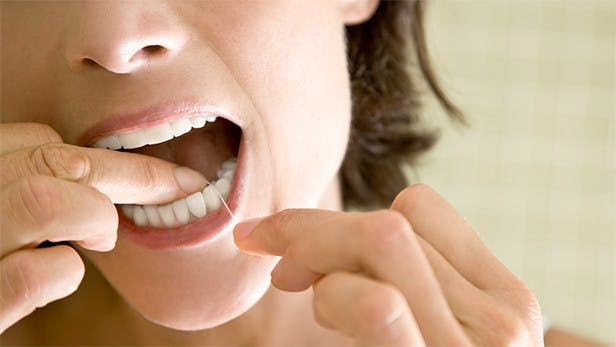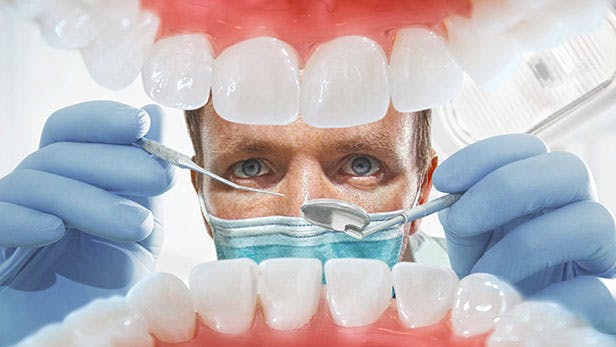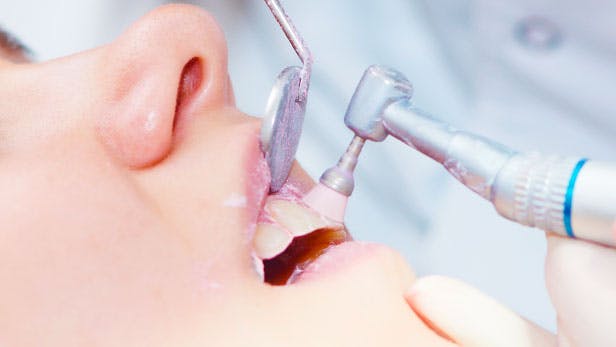HOW YOU CAN PREVENT YOUR GUMS FROM BLEEDING?
Healthy gums don't bleed, so seeing blood in your spit when brushing or flossing is not normal. It could be an early sign of gum disease, so make sure you speak to your dentist if you do experience bleeding gums.
There are a number of possible causes of bleeding gums - a new oral care routine, brushing too much, too hard or not enough, or using certain medications.1 Often, gum bleeding can be caused by the build-up of plaque bacteria around, on and in between your teeth. Unless removed (usually by brushing), this bacteria can irritate your gums, causing them to bleed.
So, here are six simple steps you can take in your daily oral care routine to reduce your risk of seeing blood when you spit:
1. Twice for two
Brushing helps remove plaque bacteria and food particles that, if allowed to build up around, on and in between your teeth, can irritate your gums and lead to problems like gingivitis. Brush twice a day, using a fluoride toothpaste like parodontax.
2. Don't miss anywhere
Make sure you clean every corner of your mouth whenever you brush, including hard to reach areas like in between your teeth. Move methodically around your mouth, covering off the outer and inside surfaces of all your teeth (upper and lower) as well as the chewing surfaces. You can also ask your dentist about the best way to brush your teeth.
3. Be gentle
When it comes to teeth cleaning, harder is not better. In fact, brushing too roughly or too much, or using a worn toothbrush can damage tooth enamel, so brush carefully. It is also recommended to replace your toothbrush every three months.
4. Know your angles
Use a circular or elliptical motion and point the toothbrush down towards the gum at a 45 degree angle. This helps clean the gum line (the area where the gum meets the tooth). For the inside surfaces of your front teeth, tilt the brush vertically and use the front part to make small, circular strokes.
5. Don't forget your gum line
Your gum line can be susceptible to the build-up of harmful plaque bacteria. Be especially careful to brush away plaque from this area as well as from in the gaps between your teeth. Along with regular flossing or using interdental brushes, this can help you control plaque build-up.
6. And don't forget your tongue either
Good oral hygiene isn't just about your teeth and gums. Brushing your tongue gently can also help freshen your breath and clean your mouth by removing bacteria.
1 Bleeding of Gums - American Dental Association. 2016. Bleeding of Gums - American Dental Association. [ONLINE] Available at: http://www.mouthhealthy.org/en/az-topics/b/bleeding-gums. [Accessed 02 August 2016].


